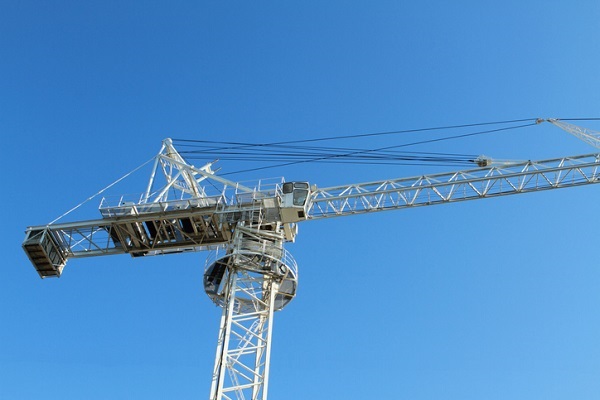ii view: why Balfour Beatty has defied market gloom
15th March 2023 11:49
by Keith Bowman from interactive investor
A growing order book and a double-digit increase in the annual dividend. Buy, sell, or hold?

Full-year results to 31 December 2022
- Revenue up 8% to £8.9 billion
- Underlying profit up 42% to £279 million
- Order book up 8% to £17.4 billion
- Final dividend of 7p per share
- Total dividend for the year up 17% to 10.5p per share
- Share buyback programme of £150 million
Chief executive Leo Quinn said:
"The strong results in 2022 are a testament to Balfour Beatty's transformation into a well-balanced and lower risk group. We believe that Balfour Beatty's unique capabilities and the positive outlook in its chosen markets will enable it to deliver ongoing profitable managed growth."
- Invest with ii: Open an ISA | ISA Investment Ideas | ISA Offers & Cashback
ii round-up:
Construction and support services company Balfour Beatty (LSE:BBY) today detailed results which beat City estimates as Central London property projects normalised following the pandemic and currency movements aided overseas operations.
Full-year 2022 revenues climbed 8% to £8.9 billion, pushing overall profit (including gains on its infrastructure investments) up 42% to £279 million. Operational profits excluding investments rose 28% to £232 million, easily exceeding analyst estimates of £212 million.
The FTSE 250 company's share price rose by more than 5% in UK trading having comfortably outperformed the wider index over the last year with a gain of over a third. The index itself is down 7%, while sector giant CRH (LSE:CRH) is up a fifth.
Balfour has in recent year been pursuing a transformation programme. Bidding for contracts is now more selective, with fixed price contracts for construction being reduced in order to give management increased flexibility.
Group average net cash, now a core management health indicator, rose to £804 million from 2021’s £671 million. That helped enable a 17% hike in the total 2022 dividend payment to 10.5p per share with a new £150 million share buyback programme announced for a third consecutive year running.
Balfour’s many projects have included the UK’s biggest road project, the £1.5 billion A14 improvement scheme, along with the 12.5-mile $429 million North Metro Commuter Rail line in Colorado, USA.
- The simple maths that can make you an ISA millionaire
- Is there a short-cut to investing success?
- 2023 Investment Outlook: stock tips, forecasts, predictions and tax changes
Underlying profit for its construction business rose to £149 million from last year’s £79 million. Profit for its support services division fell £83 million from 2021’s £102 million, while profits following infrastructure investment disposals rose to £81 million from a prior £49 million.
Balfour commenced the 2023 financial year with an order book of £17.4 billion, up from 2021’s £16.1 billion. A first quarter trading update is scheduled for 12 May.
ii view:
Started in 1909, Balfour today is a is a construction and support services company which also sometimes invests in infrastructure projects. Construction generates most sales, with support services coming in at around 11% and investments 5%. Geographically, sales are split relatively evenly been the UK and US, with the rest of the world and Hong Kong accounting for the balance of around 12%. Infrastructure investments include US military housing.
For investors, the challenging economic backdrop cannot be forgotten, and stretched government finances following both the pandemic and a consumer energy crisis may leave politicians less inclined to invest in infrastructure. Specific contractor risks always persist, costs for businesses generally remain elevated, while infrastructure investments can prove challenging to sell.
On the upside, diversity of both operations and geographical regions is enjoyed, management’s transformation programme has continued and an increased order book offers some future visibility. A focus on shareholder returns is also attractive, with the shares offering a prospective dividend yield in the region of 3%.
On balance, and while room for caution persists, the now de-risked and diversified company offer grounds for optimism longer term, with the share price resilient this year near a 15-year high.
Positives:
- Transformation programme
- Focus on shareholder returns
Negatives:
- Rising costs
- Uncertain economic outlook
The average rating of stock market analysts:
Buy
These articles are provided for information purposes only. Occasionally, an opinion about whether to buy or sell a specific investment may be provided by third parties. The content is not intended to be a personal recommendation to buy or sell any financial instrument or product, or to adopt any investment strategy as it is not provided based on an assessment of your investing knowledge and experience, your financial situation or your investment objectives. The value of your investments, and the income derived from them, may go down as well as up. You may not get back all the money that you invest. The investments referred to in this article may not be suitable for all investors, and if in doubt, an investor should seek advice from a qualified investment adviser.
Full performance can be found on the company or index summary page on the interactive investor website. Simply click on the company's or index name highlighted in the article.